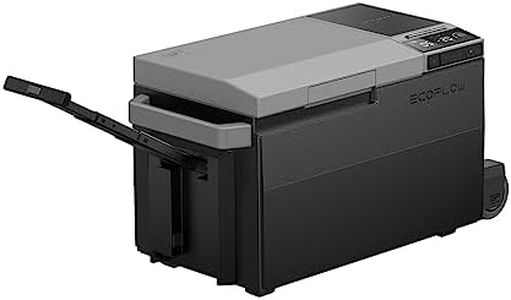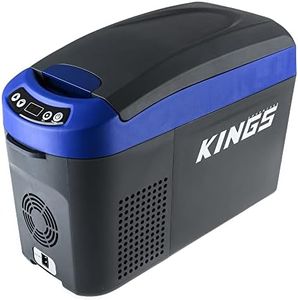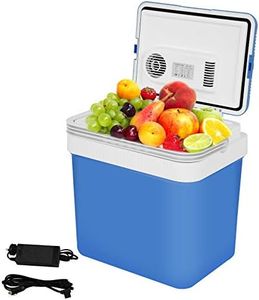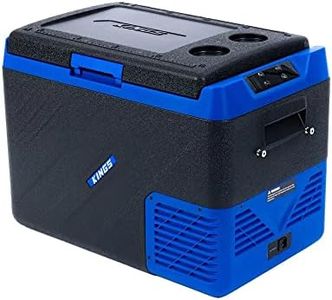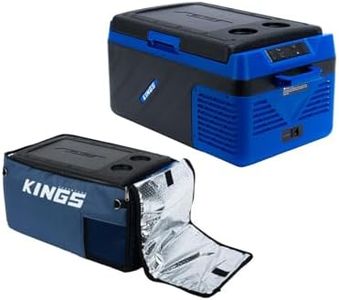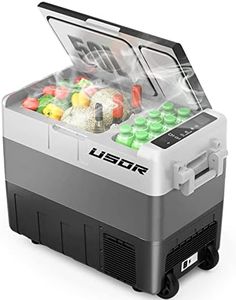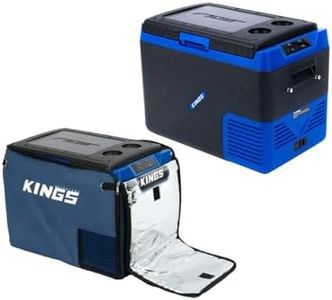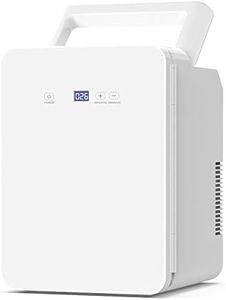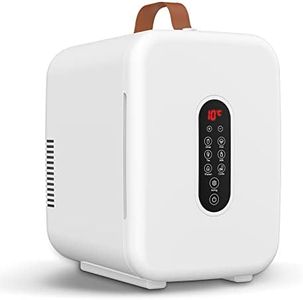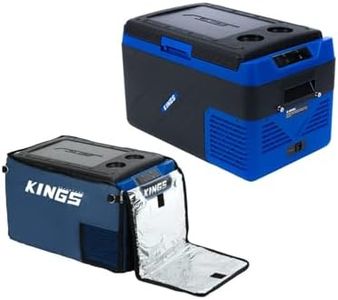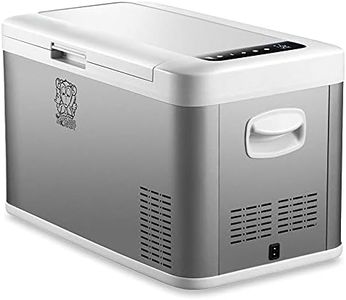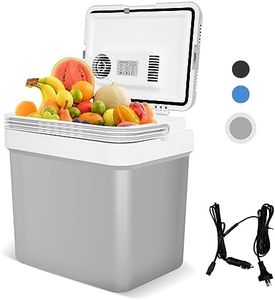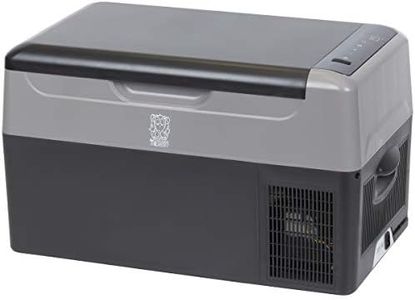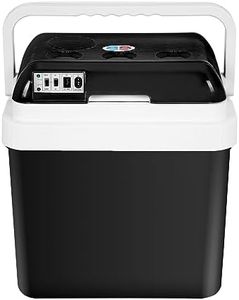We Use CookiesWe use cookies to enhance the security, performance,
functionality and for analytical and promotional activities. By continuing to browse this site you
are agreeing to our privacy policy
10 Best Electric Coolers For Cars
From leading brands and best sellers available on the web.By clicking on a link to a third party's website, log data is shared with that third party.
Buying Guide for the Best Electric Coolers For Cars
Electric coolers for cars are a great solution if you need to keep food and drinks chilled (or sometimes even warm) while on the road, camping, or during long trips. Choosing the right electric cooler involves considering where and how often you'll use it, your space limitations, and what you'll be storing inside. By understanding a few key specifications, you can make sure you get a cooler that's efficient, reliable, and suited to your lifestyle.CapacityCapacity refers to how much the cooler can hold, usually measured in liters or quarts. This is important because it determines how much food, drinks, or other items you can store in the cooler at once. Small coolers (under 25 liters) are best for individual use or short trips, while medium ones (25–40 liters) can serve small families or groups. Large coolers (over 40 liters) are suitable for bigger gatherings or longer journeys. Think about how many people will use the cooler and how much you typically need to bring along; choose a size that fits your regular needs without being unnecessarily bulky.
Cooling Method (Thermoelectric vs. Compressor)The way a cooler chills your items can be thermoelectric or compressor-based. Thermoelectric coolers use electricity to maintain a temperature below ambient levels and are lightweight and quiet; however, they usually can't chill items as much below outside temperatures, so they're better for moderate climates or for keeping pre-chilled food cool. Compressor coolers work like a mini-fridge, able to reach much lower temperatures and even freeze items regardless of the outside heat. They're more powerful and reliable for extreme conditions or temperature-sensitive goods but are usually heavier and may make more noise. Consider your typical travel conditions and needs: if you travel in hot weather or need freezer capability, compressor types are more fitting; for regular picnics or mild climates, a thermoelectric model may suffice.
Power SourceElectric coolers can be powered by your car’s 12V socket (cigarette lighter), standard wall outlets (110V/220V), or sometimes both. Some coolers also work with external batteries or solar panels. The right choice depends on how and where you'll use the cooler. For car trips, 12V compatibility is essential; if you’ll also use the cooler in hotels, homes, or at campsites, having an option for standard outlets is convenient. Make sure the cooler’s power options match your planned usage so you’re never stuck with a cold lunch instead of a cold drink.
Temperature Range and ControlThis specification tells you the range of temperatures the cooler can maintain, and whether you can precisely select the temperature. Some models offer simple cooling up to a certain point below room temperature, while others let you set an exact temperature, including the ability to freeze. The wider and more precise the range, the more versatile the cooler, especially if you want to store sensitive items like medicines or need to keep ice cream frozen. Consider how much control you want: for basic use, less control is fine; for more specific requirements, look for coolers with adjustable settings.
Portability and WeightPortability covers both the size and the weight of the cooler, as well as features like carrying handles or wheels. This matters if you'll be moving the cooler in and out of the car or carrying it over some distance. Lightweight models are easier to handle but might sacrifice space or power, while larger, heavier models may need two people to carry but offer more storage and longer cooling times. Consider who will be carrying the cooler and how much space you have for storage in the car: pick a size that balances your storage needs with your ability to move it comfortably.
Energy ConsumptionEnergy consumption refers to how much power the cooler uses, which impacts both your car battery or power supply and your long-term usage efficiency. Coolers that are energy-efficient will have less impact on your car’s battery during long trips and can be operated for longer on external power sources. Pay attention to the cooler’s wattage or amperage; lower numbers mean less power consumption. If you’re planning to run your cooler for extended periods or while the car is off, prioritize energy efficiency to avoid draining your battery.
Additional FeaturesSome electric coolers offer extra features like digital displays, USB charging ports, separate cooling zones for different items, or an ability to also warm food. While these extras aren’t necessary for everyone, they can make the cooler more versatile and convenient depending on your habits. If you value convenience, look for features that align with your specific travel and storage preferences.

